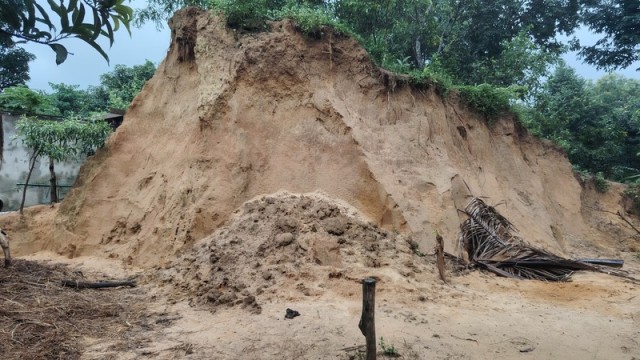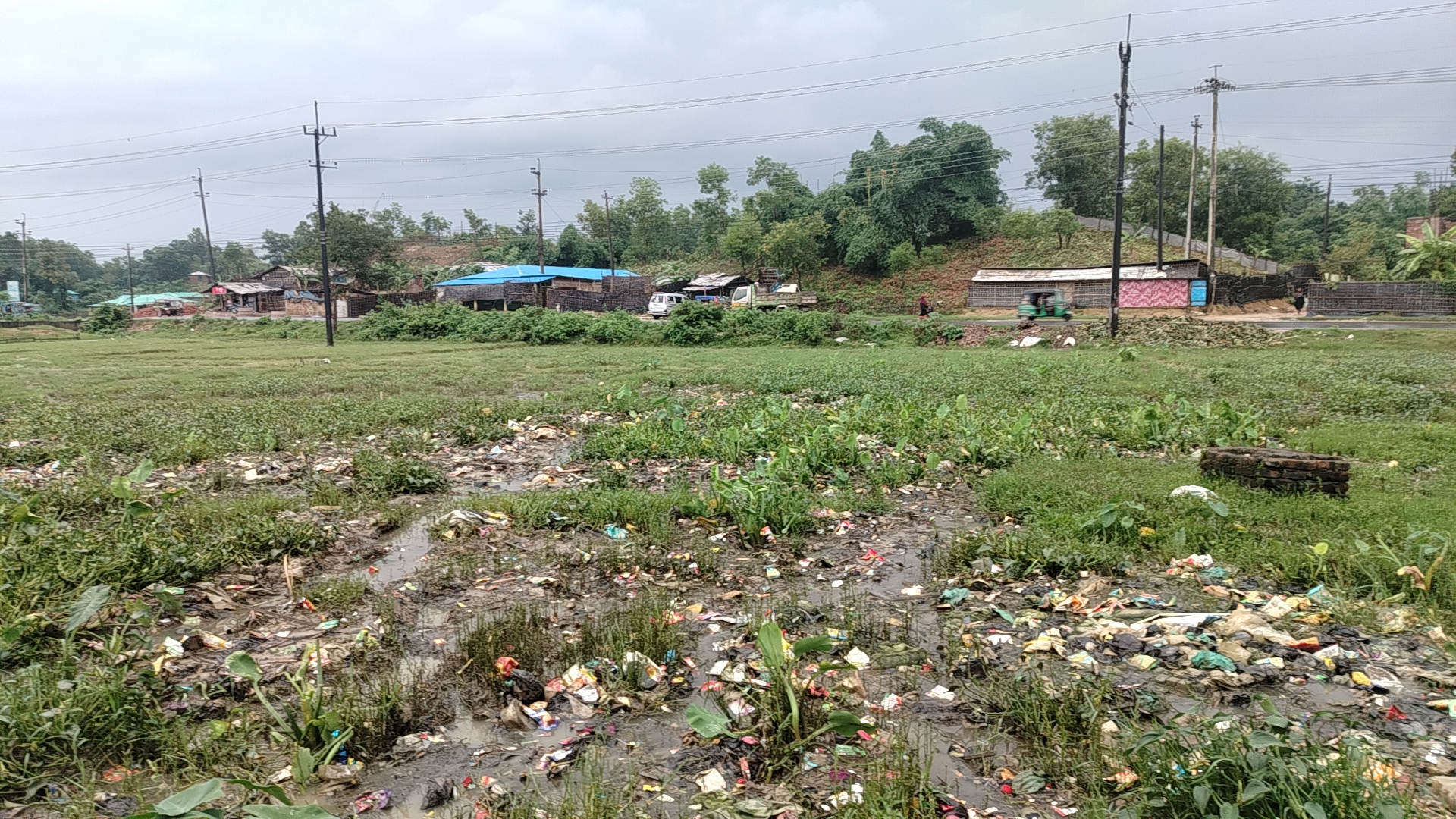
Photo: Voice7 News
A section of hillside near Army Road in Ukhiya, Cox’s Bazar, visibly cut and filled with soil, allegedly by local resident, disrupting drainage from Rohingya Camp-11 and causing waterlogging in nearby farmland.
Ukhiya, Aug 10 (V7N) — Allegations of illegal hill cutting and obstruction of a vital drainage canal near the Rohingya refugee camp in Thaingkhali have surfaced against a local resident, with farmers reporting severe damage to agricultural land due to waste overflow and waterlogging.
In the Thaingkhali area of Palongkhali Union in Cox’s Bazar’s Ukhiya upazila, local resident Nurul Alam has been accused of illegally cutting hills and filling a drainage canal adjacent to the Army Road near Rohingya Camp-11. This canal is critical for the discharge of wastewater and solid waste from the nearby refugee camp.
Nurul Alam, son of Nur Ahmed from Gojghona village in Ward-4, allegedly constructed a house inside a fenced forest reserve area next to the main Cox’s Bazar-Teknaf highway, near the entrance to Camp-11. Though the land falls under the jurisdiction of the Thaingkhali Forest Beat, questions have been raised about the forest department's apparent inaction.
A site visit revealed that earth and vegetation have been removed from a hillside and used to fill part of the natural canal. This blockage has caused sewage and plastic waste from the refugee camp to spill into adjacent farmland, leading to severe waterlogging and the disruption of cultivation activities for multiple farming families this season.
“The garbage from the Rohingya camp is being dumped on our fields. This year, cultivation is no longer possible,” said local farmer Farid Alam. “Since the arrival of the Rohingyas, the surrounding lands have become unsuitable for agriculture. Every year, we suffer losses worth hundreds of thousands of taka. Despite repeated assurances, we have received no compensation.”
Another farmer, Nurul Absar Bappa, echoed similar concerns: “Not only has the camp’s waste ruined our fields, but a man named Nurul Alam has filled the drainage canal by cutting into the hill. Now all the waste flows straight into our farmland. This will destroy this season’s crop entirely.”
When approached for comment, Nurul Alam denied the allegations. “I have no knowledge of any hill cutting or earth removal. Some local people are conspiring against me,” he claimed.
However, Thaingkhali Forest Beat Officer Bikash Das confirmed that his office had inspected the site after receiving reports. “We have already visited the area and identified illegal hill cutting. Legal action is being taken against those responsible,” he said.
The affected drainage stream runs along the southern side of the camp’s perimeter fence, allowing effluent and stormwater to exit the refugee settlement. Its obstruction poses a serious risk to both environmental safety and local livelihoods.
Despite the significant environmental and economic impacts, local farmers allege that neither the refugee camp authorities nor the relevant government offices have taken meaningful action to mitigate the issue or compensate for losses.
The incident highlights ongoing challenges in land use conflicts, environmental degradation, and unregulated development around one of the world’s largest refugee camps, where fragile ecosystems and human settlements remain in constant tension.
END/SIU/SMA/



Comment: